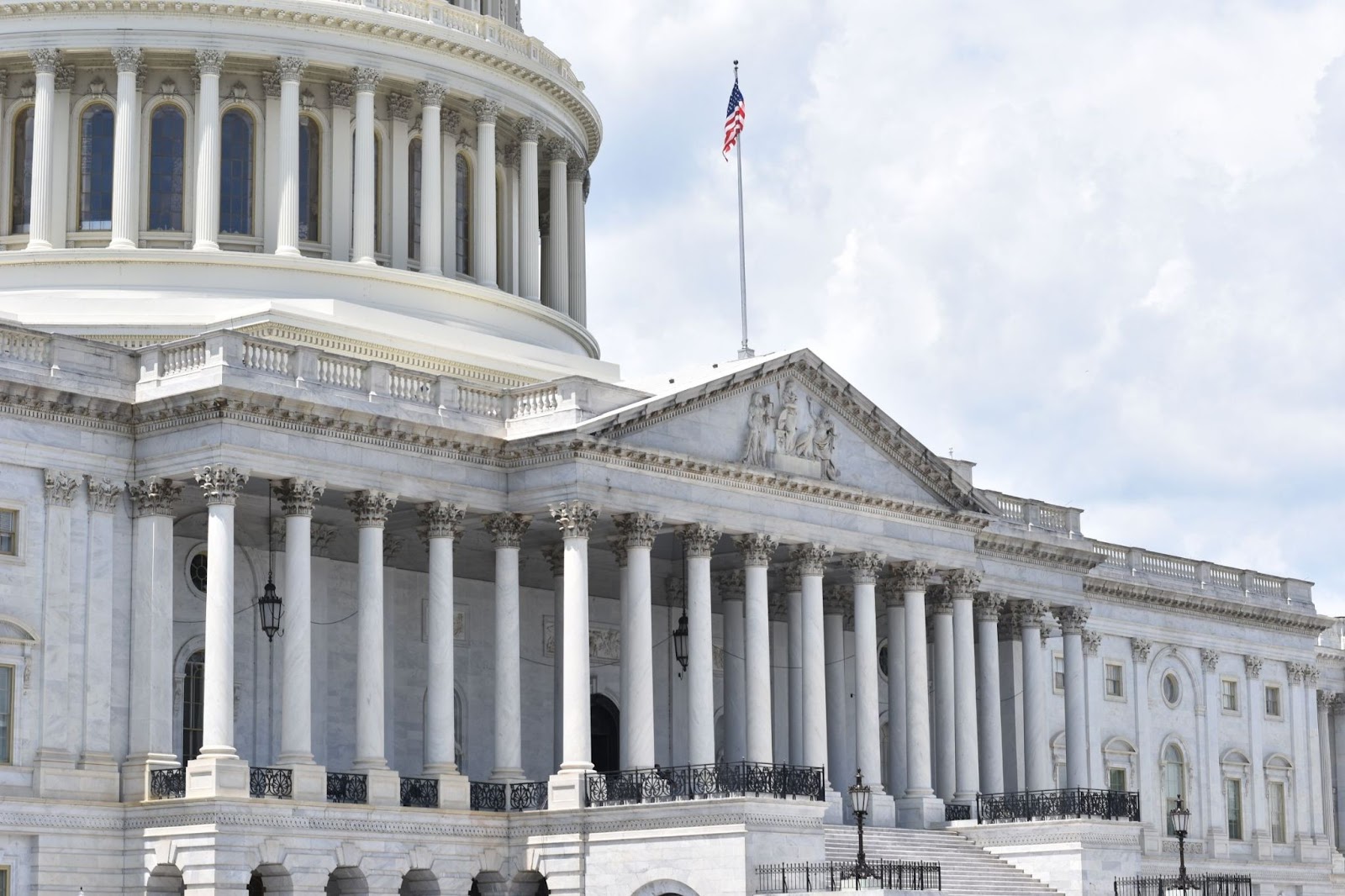Is SaaS taxable in Maryland? This question has become increasingly important for businesses and consumers navigating the state’s evolving tax laws. With varying rules based on usage, it’s essential to understand when these services are subject to tax.
In this blog, we’ll explore the current taxability of sales tax on SaaS in Maryland, explain the differences between personal and commercial use, and offer guidance on how these laws impact your financial planning. By the end, you’ll have the answers you need to stay compliant and make informed decisions.
2025 SaaS Sales Tax Rates for Maryland
As of April 2025, Maryland maintains a uniform state sales tax rate of 6% on taxable goods and services, including Software as a Service (SaaS). Notably, Maryland does not impose additional local sales taxes; the rate remains consistent across all counties and municipalities.
However, starting July 1, 2025, a new 3% sales tax will be applied to certain data and IT services, such as data processing and cloud hosting. This tax is part of Maryland’s budget plan to address a $3.3 billion deficit and aims to modernize the state’s revenue streams to better align with the digital economy.
It’s important to note that this 3% tax does not replace the existing 6% sales tax; instead, it applies in addition to it. Therefore, businesses providing SaaS and related services in Maryland should prepare for a combined sales tax rate of 9%.
Is SaaS Taxable in Maryland?
In Maryland, the taxability of SaaS depends on its use. SaaS purchased for business purposes (B2B) is generally not taxable, while SaaS for personal use (B2C) is subject to the 6% state sales tax.
Thus, to answer the question, “Is SaaS taxable in Maryland?” the answer is that recent changes to the state’s tax code will affect SaaS taxability. Starting July 1, 2025, Maryland will impose a new 3% sales tax on specific data and IT services, including cloud computing, hosting, and other SaaS-related services, raising the total sales tax rate to 9%.
This change aims to modernize the state’s tax code to align with the digital economy and generate about $500 million annually in new revenue. Businesses and consumers should be aware of these changes, as they will impact the cost of SaaS services in Maryland.
How Does Maryland Define SaaS and Digital Products?
In Maryland, the sales tax treatment of SaaS and digital products is based on their delivery method and usage. Here’s a breakdown:
Taxable Digital Products
These products are generally taxed because they are delivered digitally rather than in a physical form, which aligns with Maryland’s tax framework for digital goods. Are digital goods taxable in Maryland? Yes, Maryland imposes a 6% sales tax on the following digital products:
- SaaS (Software as a Service)
- Canned software (pre-written, non-customized software)
- Digital codes for downloadable items
- Digital media like books, magazines, and newspapers
- Streaming services (music, video, etc.)
- Ringtones and video games
Exemptions
While many digital products are subject to sales tax, there are important exemptions that apply to certain scenarios. These exemptions provide relief for businesses and consumers in specific situations:
- SaaS for business use (B2B): SaaS purchased for commercial purposes and used exclusively in a business setting is not taxable. This applies to software that helps with business operations, whether hosted on-premises or in the cloud.
- Customized software: If the software is customized to meet a customer’s specific needs, it may be exempt from tax, provided the buyer specifies the customisation.
Sales Tax on Software in Maryland
Maryland applies sales tax to various types of software and digital products based on how they are delivered and their intended use. While trying to determine “is SaaS taxable in Maryland”, understanding the specific rules for each type is crucial to ensure compliance with the state’s tax laws.
Below is a detailed breakdown of the taxability of different software products and digital goods in Maryland:
| Software Type | Taxability | Explanation |
|---|---|---|
| SaaS (Software as a Service) | Taxable (personal use) / Exempt (business use) | SaaS for personal use is taxable at 6%, but SaaS for business use (B2B) is generally exempt from sales tax. |
| Prewritten (Canned) Software | Taxable | Prewritten software, whether delivered electronically or physically, is taxable at 6%. |
| Custom Software | Exempt | Custom software tailored to a customer’s needs is generally exempt from sales tax. |
| Subscription-Based Software | Taxable | Subscriptions to software services, such as streaming or online platforms, are taxable at 6%. |
| Digital Goods (eBooks, Music, etc.) | Taxable | Digital goods like eBooks, music, and streaming services are subject to a 6% sales tax. |
How to Determine if Your Product is Taxable in Maryland?
When assessing the taxability of your product in Maryland, several factors affect whether your software or service is subject to sales tax. These include the delivery method, licensing model, customization, and whether the product is bundled with other services. The following steps will help you understand Maryland SaaS software taxability:
Delivery Method
- Electronically Delivered Software: Software delivered via cloud access or digital download (e.g., SaaS) is taxable at 6% in Maryland.
- Tangible Software: Software on physical media (e.g., CDs, DVDs) is also taxable at 6%.
Note: If the software is delivered online, it’s likely taxable.
Licensing Model
- Subscription-Based Licensing: SaaS software offered on a subscription basis is taxable at 6% in Maryland.
- Perpetual Licensing: Software sold with an unlimited license is also taxable at 6%.
Note: Subscription and perpetual licenses are both taxable under Maryland’s law.
Customization
- Custom Software: Software customized for a specific buyer is exempt from sales tax in Maryland.
- Prewritten Software: Even if modified for a specific user, prewritten software remains taxable.
Note: Customized software may be exempt, but prewritten software is generally taxable.
Bundled Services
- Bundled Transactions: If software is sold with non-taxable services and the software is the dominant product, the entire bundle may be taxable.
- Separately Stated Charges: If taxable and non-taxable items are clearly separated, only the taxable portion is subject to sales tax.
Note: Clearly separate charges for bundled products to avoid unnecessary tax on non-taxable services.
Practical Guidance
- Review Delivery Methods: Check if the product is delivered electronically (likely taxable) or via physical media (also taxable).
- Analyze Licensing: Determine if the software is subscription-based or perpetual; both are taxable.
- Consider Customization: Custom-built software for specific client needs may be exempt.
- Examine Bundles: For bundled services, ensure taxable and non-taxable items are clearly separated on the invoice.
Are Digital Goods Taxable in Maryland?
In Maryland, the taxability of digital goods varies based on their nature and delivery method. While prewritten (standardized) software delivered electronically is subject to the state’s 6% sales tax, other digital products such as music, videos, and reading materials are generally exempt when delivered electronically. However, digital games are taxable in Maryland.
For SaaS businesses, software and services provided online to customers, including access to cloud-based applications and digital platforms, are taxable in Maryland. Is SaaS taxable in Maryland? Yes, this taxability applies regardless of whether the customer is a business (B2B) or an individual (B2C), making it crucial for SaaS providers to account for sales tax on transactions. Understanding Maryland’s tax rules is essential to ensure compliance and avoid penalties.
Sales Tax Exemptions in Maryland
Maryland offers several sales tax exemptions, especially for businesses and organizations in software, digital products, and related services. Here’s an overview of key exemptions and the importance of proper documentation:
Resale Exemption
- Eligibility: Businesses purchasing goods for resale.
- Requirement: Obtain a valid resale certificate.
- Documentation: Maintain records of resale transactions.
Nonprofit Organizations
- Eligibility: Nonprofit entities recognized under Maryland law.
- Exemption: Certain purchases made by nonprofits are exempt.
- Documentation: Provide a valid exemption certificate at purchase.
Custom Software
- Eligibility: Software developed specifically for a customer.
- Exemption: Custom software is exempt from sales tax.
- Documentation: Keep contracts and specifications demonstrating customization.
Government and Educational Institutions
- Eligibility: Federal, state, local government agencies, and educational institutions.
- Exemption: Purchases made for official use are exempt.
- Documentation: Provide purchase orders or exemption certificates.
Importance of Documentation
Proper documentation is crucial to substantiate claims for sales tax exemptions. Businesses should:
- Retain Records: Keep detailed records of exempt transactions.
- Verify Eligibility: Confirm the buyer qualifies for exemption.
- Consult Guidelines: Refer to Maryland’s guidelines and seek professional advice for compliance.
Consequences of Non-Compliance with Maryland’s SaaS Service Tax Rules
Is SaaS taxable in Maryland?”, If you are trying to answer this question, then you must understand that failing to adhere to Maryland’s SaaS service tax rules can lead to significant penalties and risks for businesses. Here’s a brief overview:
- Penalties: Businesses may face penalties for failing to collect and remit the correct sales tax, including fines and interest charges on unpaid taxes. The penalty can be substantial, especially if the non-compliance is found to be intentional or due to negligence.
- Audit Risk: Non-compliant businesses may be subject to an audit by the Maryland Comptroller’s Office, leading to further scrutiny of business transactions and records.
- Back Taxes: If SaaS services were incorrectly classified or exempted, businesses could be required to pay back taxes for previously uncollected sales tax, which can significantly affect cash flow.
- Legal Actions: In extreme cases, businesses may face legal action or enforcement measures if they repeatedly fail to comply with tax regulations.
Commenda can help Maryland SaaS businesses by automating sales tax calculations, ensuring compliance with Maryland SaaS service tax rules, and managing exemption certificates.
Filing and Remitting Maryland Sales Tax for SaaS Businesses
To stay compliant with Maryland tax rules for SaaS businesses, understanding how to file and remit sales tax is essential, especially when determining if SaaS is taxable in Maryland. Here’s a concise guide to help you with the filing process:
Filing Frequencies and Due Dates
- Initial Filing Frequency: Businesses typically start with quarterly filings.
- Adjustments: The Comptroller’s Office may modify your filing frequency to monthly, semiannual, or annual based on your tax liability. You’ll be notified in advance of any changes.
- Due Dates: Returns are generally due on the 20th day of the month following the reporting period. If the due date falls on a weekend or holiday, it’s extended to the next business day.
How and Where to File?
- Online Filing: Use the Maryland Tax Connect Portal to file your sales and use tax returns electronically. This platform is free and efficient.
- Payment Methods: Payments can be made electronically through the portal, by check or money order (payable to the Comptroller of Maryland), or via credit card online.
Timely Filing Discount
If you file and pay your sales tax on time, you may be eligible for a discount
- 1.2% of the first $6,000 collected.
- 0.9% for amounts over $6,000.
Note: Discounts are not available if the return and payment are submitted after the due date.
Common Sales Tax Challenges for SaaS Companies in Maryland
SaaS businesses in Maryland face several challenges when it comes to managing sales tax rules. Following are some key hurdles that can complicate compliance, especially when determining is SaaS taxable in Maryland:
- Nexus Misunderstanding: SaaS companies may establish an economic nexus in Maryland if they exceed $100,000 in sales or 200 transactions in the state. This triggers the obligation to collect and remit sales tax, even without a physical presence.
- Bundled Services: When taxable and non-taxable services are sold together for a single price, the entire charge may be subject to sales tax if the dominant purpose is to obtain the taxable item.
- Exemption Management: Navigating exemptions, such as those for custom software or sales to nonprofit organizations, requires careful documentation. Mismanagement can lead to tax liabilities and penalties.
- Multi-State Compliance: SaaS businesses operating in multiple states must understand each state’s taxability rules and nexus thresholds. This complexity increases the risk of non-compliance.
Simplify Maryland SaaS Sales Tax Compliance with Commenda
Managing Maryland SaaS sales tax rules can be tricky, but Commenda makes it easy. Our platform helps you quickly determine whether your services are taxable, ensuring you’re always in line with the latest tax laws.
It also tracks your business’s nexus status, so you know when and where you need to collect tax, avoiding surprises. Commenda makes managing exemptions for things like custom software or nonprofit sales simple, keeping all your documentation organized. Plus, we automate the filing process so that you can submit your returns on time without stress.
With Commenda, you can focus on growing your SaaS business while staying compliant with ease. Schedule a demo today to see how Commenda can simplify your tax compliance efforts.
FAQs About Maryland SaaS Sales Tax
Q. Is SaaS taxable in Maryland if my business doesn’t have a physical office there?
Yes, SaaS is taxable in Maryland if you exceed economic nexus thresholds (e.g., $100,000 in sales or 200 transactions), even without a physical presence.
Q. How does Maryland classify SaaS products for sales tax purposes?
SaaS is generally taxable in Maryland as a digital product, subject to a 6% sales tax.
Q. Do I need to collect sales tax in Maryland if I only sell subscription-based SaaS?
Yes, subscription-based SaaS is taxable in Maryland at 6%, regardless of the business or individual customer.
Q. Are setup fees or bundled SaaS services taxable in Maryland?
Yes, if the setup fees or bundled services are part of a taxable SaaS product, they are also subject to the 6% sales tax.
Q. What are the penalties for not charging sales tax on SaaS in Maryland?
Penalties may include fines, interest on unpaid taxes, and potential audits. Non-compliance could result in financial and legal consequences.
Q. Does Maryland provide exemptions for SaaS sold to nonprofit or government entities?
Yes, Maryland provides exemptions for sales to qualifying nonprofit or government entities, provided they have valid exemption certificates.
Q. How often do SaaS businesses need to file sales tax returns in Maryland?
Filing frequency depends on your sales volume. It can be monthly, quarterly, or annually, with returns due on the 20th of the month following the reporting period.
Q. What’s the easiest way to automate SaaS sales tax compliance in Maryland?
Using platforms like Commenda, which automate taxability decisions, nexus tracking, and filing, can simplify sales tax compliance for SaaS businesses in Maryland.











